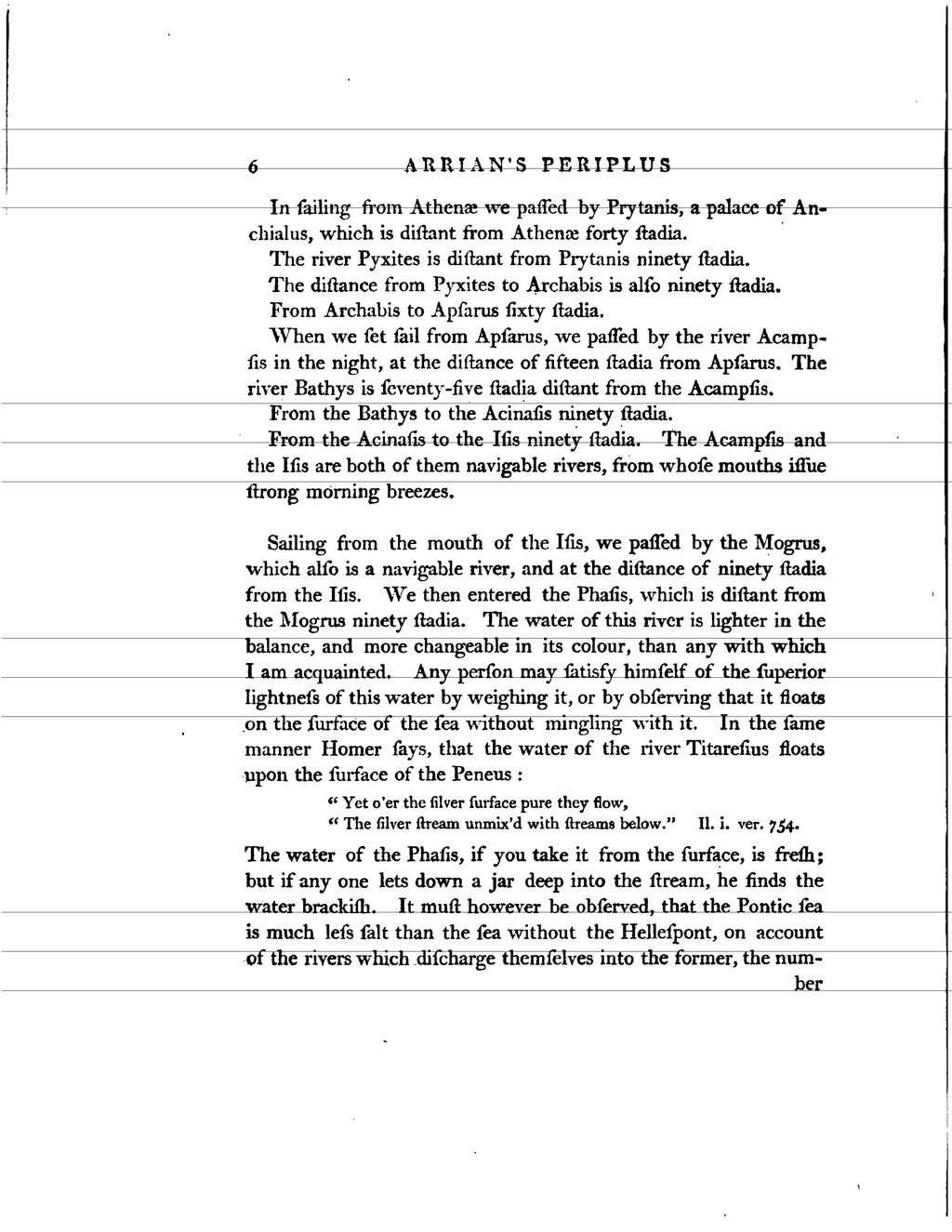In ſailing from Athenæ; we paſſed by Prytanis, a palace of Anchialus, which is diſtant from Athenæ forty ſtadia.
The river Pyxites is diſtant from Prytanis ninety ſtadia.
The diſtance from Pyxites to Archabis is alſo ninety ſtadia.
From Archabis to Apſarus ſixty ſtadia.
When we ſet ſail from Apſarus, we paſſed by the river Acampſis in the night, at the diſtance of fifteen ſtadia from Apſarus. The river Bathys is ſeventy-five ſtadia diſtant from the Acampſis.
From the Bathys to the Acinaſis ninety ſtadia.
From the Acinaſis to the Iſis ninety ſtadia. The Acampſis and the Iſis are both of them navigable rivers, from whoſe mouths iſſue ſtrong morning breezes.
Sailing from the mouth of the Iſis, we paſſed by the Mogrus, which alſo is a navigable river, and at the diſtance of ninety ſtadia from the Iſis. We then entered the Phaſis, which is diſtant from the Mogrus ninety ſtadia. The water of this river is lighter in the balance, and more changeable in its colour, than any with which I am acquainted. Any perſon may ſatisfy himſelf of the ſuperior lightneſs of this water by weighing it, or by obſerving that it floats on the ſurface of the ſea without mingling with it. In the ſame manner Homer ſays, that the water of the river Titareſius floats upon the ſurface of the Peneus:
"Yet o'er the ſilver ſurface pure they flow,
"The ſilver ſtream unmix'd with ſtreams below." Il. i. ver. 754.
The water of the Phaſis, if you take it from the ſurface, is freſh; but if any one lets down a jar deep into the ſtream, he finds the water brackiſh. It muſt however be obſerved, that the Pontic ſea is much leſs ſalt than the ſea without the Helleſpont, on account of the rivers which diſcharge themſelves into the former, the num-
ber

